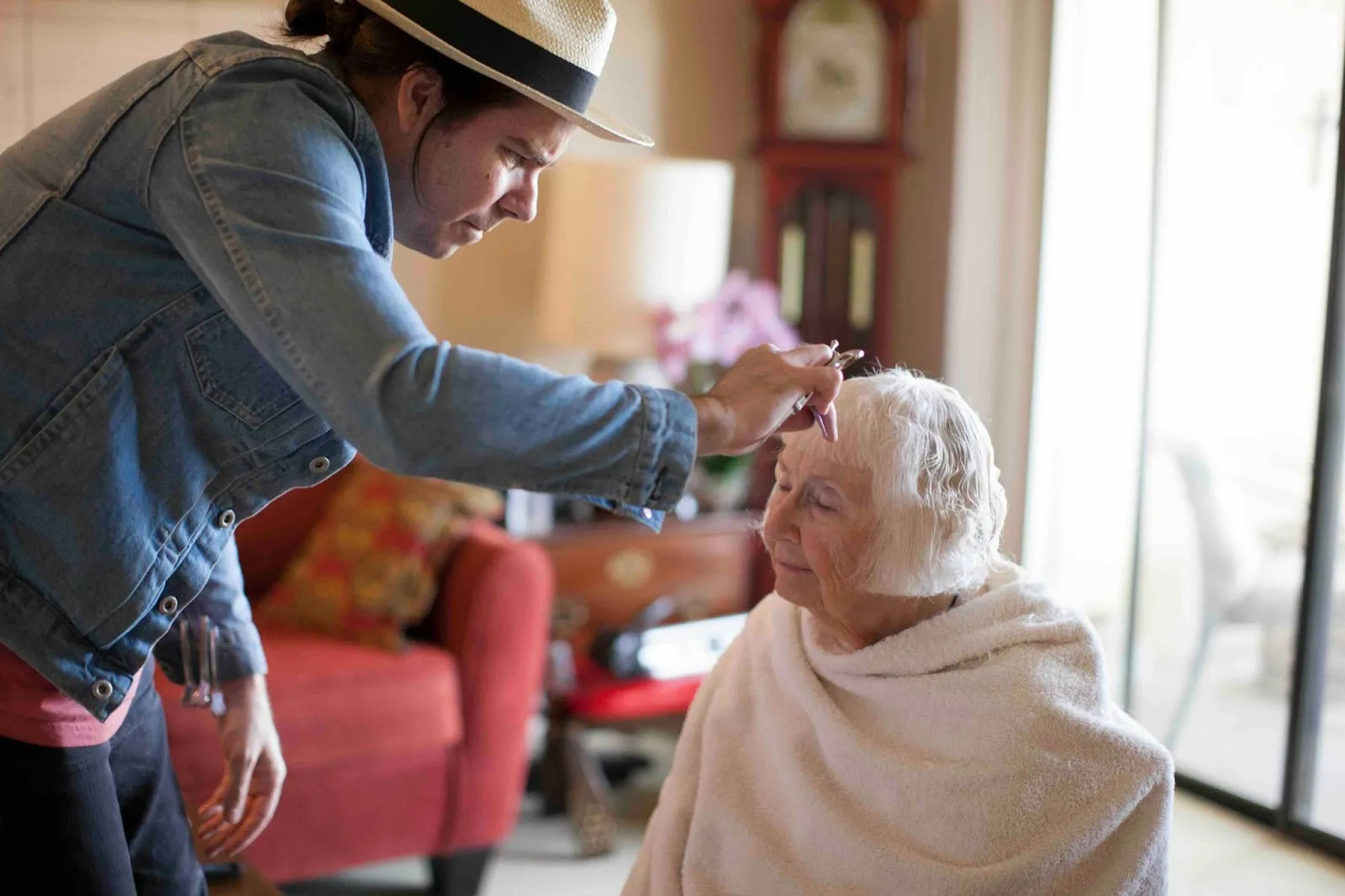Dementia Stages and Home Care Tips for Each One
.jpeg)
Caring for someone with dementia means walking beside them through an unpredictable, often emotional journey. The condition evolves over time, requiring caregivers to adjust their approach as symptoms change. By understanding the different stages of dementia, you can anticipate challenges and tailor your care to meet your loved one’s needs, without losing sight of your own well-being.
This guide walks through the key dementia stages and offers practical home care strategies for each one. Whether you're supporting someone in the early stage or navigating end-of-life care, you'll find compassionate, actionable advice here.
What are the stages of dementia?
Before jumping into care techniques, it's important to understand how dementia is commonly categorized. This helps caregivers plan ahead and avoid feeling blindsided by behavioral or cognitive shifts.
Understanding Dementia Progression
Dementia is not a single disease. It’s a clinical syndrome that the Alzheimer’s Association describes as “a general term for loss of memory, language, problem-solving, and other thinking abilities that are severe enough to interfere with daily life”. It’s progressive, meaning symptoms worsen over time, and it's typically caused by diseases like Alzheimer’s, Lewy body dementia, or frontotemporal dementia.
While progression varies from person to person, most individuals follow a general pattern from mild cognitive changes to severe loss of functions.
Commonly Used Stage Models
Clinicians use different models to describe dementia stages. The 3-stage model consists of mild (early), moderate (middle), and severe (late), and offers a clear, practical framework for families.
The 7-stage Global Deterioration Scale (GDS) provides more detailed clinical insight; however, for the purpose of home care planning, the 3-stage model is easier to apply and understand. Each stage brings its own care considerations, emotional impact, and communication needs.
Early Stage (Mild Dementia)
When dementia is first diagnosed, the symptoms can be subtle. Many people continue to live independently, but they may begin to need help managing more complex tasks. The early stages of dementia last roughly about 2 years.
Signs and Symptoms
In the early stage, individuals might:
- Struggle with short-term memory
- Misplace objects or repeat stories
- Find it hard to follow conversations
- Experience confusion in new environments
- Confront visual-perceptual difficulties
These changes can be frustrating, especially because the person is often aware of their cognitive decline. Anxiety and depression are also common at this point.
Home Care Tips for Early Stage
Care at this stage is about support, not control. The goal is to help your loved one maintain independence while gradually introducing tools and routines that make life easier.
Start by setting up daily routines that offer predictability, like having meals at the same time each day or designating a central place for keys and wallets. Use reminders and visual aids, such as calendars, checklists, or labeled cabinets, to assist with memory. Technology can be a big help too: shared calendar apps, medication apps, GPS-enabled devices, or digital picture frames with names and faces can provide gentle support.
Most importantly, involve your loved one in planning for their future care, medical wishes, and legal documents. These conversations can be difficult, but having them early preserves their autonomy and avoids uncertainty later on.
Middle Stage (Moderate Dementia)
This stage often brings the most noticeable changes and requires a shift in your role as a caregiver. It’s also when families tend to feel the most overwhelmed.
Signs and Symptoms
During this stage, your loved one may:
- Struggle to recognize familiar people or places
- Exhibit increased confusion or agitation
- Experience sleep disturbances or sundowning
- Need assistance with bathing, dressing, or eating
- Experience worsening problems with memory and thinking
- Experience worsening speaking or ability to use language
- Experience delusions
The person might also wander, become more emotionally volatile, or express frustration through aggression, all of which can be distressing for both sides.
Home Care Tips for Middle Stage
You’ll likely become more hands-on in this stage, managing both physical safety and emotional reassurance.
Begin by making the home environment safer: remove tripping hazards, secure doors if wandering is a concern, and add night lights for better visibility. Keep communication simple and calm. Short sentences, visual cues, and nonverbal reassurance can help bridge gaps in understanding.
When offering choices, limit them. Instead of “What would you like to wear?” try “Do you want the red shirt or the blue one?” This reduces anxiety and makes everyday tasks more manageable.
Routine is still essential. Try to maintain a consistent schedule for meals, rest, and activities. If personal hygiene becomes a challenge, turn it into a soothing ritual with music or warm towels, small touches that preserve dignity.
This is also the time to build your support network. Respite care, adult day programs, and part-time home health aides can provide essential relief and help you avoid burnout.
When to Reassess Care Needs
If your loved one is falling frequently, becoming physically aggressive, or struggling with swallowing and nutrition, it may be time to consider whether home remains the safest option. A care home can be a great next step in compassionate care.

Late Stage (Severe Dementia)
In the final stage, dementia takes a deep toll on both physical and cognitive abilities. The end stages will require complete care for all activities. Your role as a caregiver becomes focused on comfort, dignity, and connection in nontraditional ways.
Signs and Symptoms
At this point, you may see:
- Minimal or no verbal communication
- Loss of mobility, often leading to being bed-bound
- Difficulty swallowing or eating
- Incontinence and complete dependence for all activities
The person may no longer recognize family members, but that doesn’t mean they’re unaware. Emotional presence still matters.
Home Care Tips for Late Stage
Here, the goal shifts toward comfort-based care. Physical needs become more complex, feeding may require special techniques, and preventing bedsores is crucial. A healthcare provider can show you how to reposition your loved one regularly or introduce thickened liquids to reduce choking risks.
But care isn’t just physical. Even when speech is gone, connection is still possible. Playing their favorite songs, gentle touch, reading aloud, looking at pictures together, brushing their hair, telling them a story, or simply sitting together can offer profound comfort.
You may also want to engage palliative care or hospice services, even if your loved one is still at home. These professionals provide equipment, symptom management, and guidance that can make a hard time more manageable.
Dementia Medications and Support Options
Medication won’t reverse dementia, but it may offer small improvements, or at least slow progression in earlier stages. According to the Alzheimer’s Association, the FDA has approved medications that fall into two categories: drugs that change disease progression in people living with early Alzheimer's disease, and drugs that may temporarily mitigate some symptoms of Alzheimer's dementia.
Drugs like donepezil, rivastigmine, and galantamine may help boost memory and concentration by regulating neurotransmitters. Memantine is often used in moderate to severe stages to support brain function.
These dementia medications can cause side effects, including nausea or dizziness, and they’re not effective for every type of dementia. They work best as part of a broader care plan that includes emotional, physical, and social support.
Where can I find support?
Don’t hesitate to seek help. Home health aides, occupational therapists, and care coordinators can offer specialized support. Local nonprofits and online groups often host workshops, support circles, and resources tailored to family caregivers. Even just talking to someone who has experienced the same situation can make a difference. A variety of organizations and services provide valuable support and resources for individuals living with dementia and those who care for them. These options include:
- Community-based support, like faith communities, your regional Area Agency on Aging, or local branches of the Alzheimer's Association
- National nonprofit groups, including the Alzheimer's Association, Alzheimer’s Foundation of America, Lewy Body Dementia Association, Lewy Body Dementia Resource Center, Association for Frontotemporal Degeneration, and the National Task Group on Intellectual Disabilities and Dementia Practices
- Government and tribal programs at the local and state level, which can often be located through tools like the Eldercare Locator or by contacting the Indian Health Service
- Federal resources, such as Alzheimer’s Disease Research Centers supported by the National Institute on Aging and the ADEAR (Alzheimer’s and related Dementias Education and Referral) Center
- Private, fee-based care services, which may require out-of-pocket payment
How Caily Supports Dementia Care at Home
Navigating dementia care at home is never simple, but you don’t have to figure it out alone. Caily was built to support families just like yours. From organizing medical appointments and storing important documents to coordinating care tasks with other family members, Caily helps you stay on top of everything without feeling overwhelmed. You can set daily check-ins, track changes in behavior or routines, and create a secure communication space for everyone involved in your loved one’s care. With thoughtful tools designed for connection and clarity, Caily makes the day-to-day more manageable, so you can focus on being present with your loved one.
FAQs About Dementia Care
Is dementia hereditary?
In most cases, dementia isn’t inherited directly. Some genetic factors may raise risk, particularly for early-onset forms of Alzheimer’s, but lifestyle and age play a bigger role for the general population.
How to avoid dementia?
There’s no guaranteed way to prevent it, but you can lower your risk. Stay physically active, eat a Mediterranean-style diet, stay socially engaged, manage chronic conditions, and regularly challenge your brain.
When should someone with dementia go into a care home?
Timing depends on safety, medical needs, and caregiver capacity. If home care can’t meet basic needs or is causing harm to the caregiver’s health, a care home may offer more stability and peace of mind.
How to care for dementia patients at home?
The key is to adapt your care to the stage of dementia. Build routines, prioritize safety, support dignity, and get help when you need it. Compassion and consistency matter more than perfection.
How to help someone with dementia?
Offer support by keeping routines consistent, speaking clearly, and encouraging independence when possible. Create a safe environment and engage in simple, meaningful activities together. Most importantly, be patient and compassionate and don’t hesitate to reach out for support from local or national dementia resources.

Get Started Now
Enjoy full access to everything Caily offers, from medication tracking to shared schedules and daily check-ins. See how much easier caregiving can be when everything is coordinated in one place.
Start your free trial
